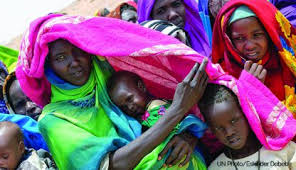Will universal health coverage be achieved by 2030, the goal set by the WHO in 2015 ? ” We’re a long way from that “, says economist Bruno Ventelou, Director of Research at the French National Center for Scientific Research (CNRS). Implementing this ambitious project by the end of the decade therefore seems illusory today, but the study carried out by the researcher with his colleagues from the Aix – Marseille School of Economics shows that its financing is nevertheless ” feasible “.
Based on concrete examples, the study suggests combining financing methods in different countries, especially in Africa. The result is a model that allows us to compare different scenarios for financing universal health coverage, and to see ” how much it costs the state, who wins, who loses “.
For example, and again according to the economists, financing such a system is not out of reach : it would cost Mali and Chad respectively 26 million and 67 million euros a year. At the time of the study, 23 % of the population had health coverage in Mali, but only 2 % in Chad. Thanks to their calculations, the researchers estimate that premiums charged to households and a tax on consumption could be ” efficient ” to meet the financial needs of universal health coverage in these two countries.
Source here.


